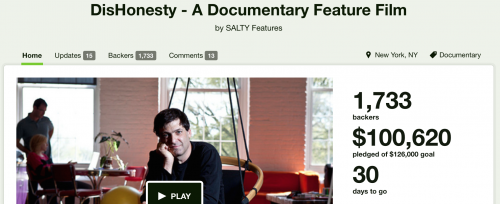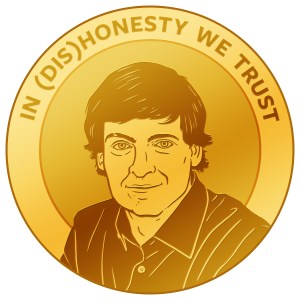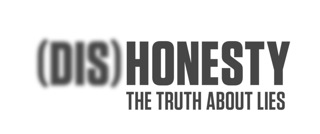Introducing The Truth Box
The Truth Box is a traveling story booth where we invite participants to share the truth about a lie they’ve told. These personal stories will be recorded and ultimately shared online. The Truth Box installation recently premiered at the Games for Change Festival, and is now in YouTube’s reception area in the Chelsea Market (75 9th Avenue) in New York City. If you are in the area, stop by and share your truth!
The Seinfeld Rules of Lies
Seinfeld is one of the most popular American TV shows, created by Larry David and Jerry Seinfeld. In one episode, George Costanza, the best friend of the main character, offered some advice about lying—some lies are not technically lies when taking into account the specific situation. Here is George’s list of 14 justified lies:
1. It’s not a lie if you believe it.
2. It’s not a lie if it doesn’t help you.
3. It’s not a lie if it hurts you.
4. It’s not a lie if it helps someone else.
5. It’s not a lie if it doesn’t hurt someone else.
6. It’s not a lie if everyone expects you to lie.
7. It’s not a lie if the other person knows the truth.
8. It’s not a lie if nobody can prove it.
9. It’s not a lie if you don’t get caught.
10. It’s not a lie if you don’t need to tell another lie to cover it up.
11. It’s not a lie if you were crossing your fingers.
12. It’s not a lie if you proceed to make it true.
13. It’s not a lie if nobody heard you say it.
14. It’s not a lie if nobody cares.
We were interested in whether people agreed with Costanza’s point of view. Do they justify these 14 behaviors? Do they believe lies are not technically lies if you don’t believe them, they don’t help you, and so on? To test these ideas, we made a short survey and released it through our “Sample Size Matters” App. Users indicated to what extent they agreed with each of George’s statements about lies on a scale of 1 to 7, 1 being strongly disagree and 7 strongly agree.
911 participants completed our survey, and, surprisingly, all of the statements were rated below a 4 (the mid-point of the scale), which means that people on average disagree with Costanza’s point of view. Additionally, the statements with the highest scores were “It is not a lie if you believe it” (mean=3.81) and “It is not a lie if you proceed it to make it true” (mean = 2.98).
Do these results suggest that people disagree with Costanza’s list of justified lies? Not necessarily. Our views about dishonesty may very well change depending on whether we’re the ones being dishonest—perhaps we believe these rules only when trying to justify our dishonesty.
Mazar, Amir and Ariely (2008) put forward a theory of dishonesty—individuals behave dishonestly enough to profit but honestly enough to maintain a sense of their own integrity. This is what they called the ‘self-concept maintenance theory’ and possibly explains Costanza’s rationalization.
At the end of our survey we asked participants to indicate what other situations they wouldn’t consider lying, and they came up with a lot of creative suggestions such as “It is not a lie if you miss the important details”, “It is not a lie if it is a joke or an irony”, “It is not a lie if it makes someone happy” and “It is not a lie if your salary or job depends on it.” Everyone could come up with at least one or two lies that are justified! Can you?
~Ximena Garcia Rada~
References
Mazar, N., Amir, O., & Ariely, D. (2008). The dishonesty of honest people: A theory of self-concept maintenance. Journal of marketing research, 45(6), 633-644.
$100,000 and 1,733 of you
I’m thrilled to announce that we’ve made it to 100k just in time for the halfway point of the 60-day kickstarter campaign for my documentary-in-progress, (Dis)Honesty: The Truth About Lies. Please help spread the word to keep this amazing community growing.
See the Kickstarter here: https://bitly.com/dishonestykickstarter
(Dis)Honestly Yours,
Dan
A Pot’o’Gold for St. Patrick’s Day
Want your very own bag of BiteCoins? Click Here.
A Documentary about (Dis)Honesty
It is my greatest pleasure to announce a documentary that I have been working on with Yael Melamede of Salty Features.
Today, we launch a Kickstarter campaign that will help us finish the film and build its presence in the world.
[protected-iframe id=”0c35872a2195114e20aa1c3cbc1f5c0b-1285065-1348005″ info=”https://www.kickstarter.com/projects/1501481976/dishonesty-a-documentary-feature-film/widget/video.html” width=”480″ height=”360″ frameborder=”0″ scrolling=”no”]
Please visit our Kickstarter Page to learn more about (Dis)Honesty and to become part of this special project.
Then, share the project with all your family members, closest friends, acquaintances, the cashier at your local grocery store, that guy you bumped into on the way to work, the lady whose wallet you found on the street and returned…everyone!
Thank you for your support, and I look forward to working with you along the way.
(Dis)honestly Yours,
Dan Ariely
P.S. Like The Dishonesty Project on Facebook!
And follow on Twitter: https://twitter.com/dishonestyproj
New ATD: Teddy Bears and Truthfulness
Arming the Donkeys this week features Sreedhari Desai, assistant professor of organizational behavior at the Kenan-Flagler Business School at UNC-Chapel Hill. Dan and Sreedhari discuss her research utilizing childhood memories and toys to curb dishonesty in adults.
Here’s the link: https://itunes.apple.com/us/itunes-u/teddy-bears-and-truthfulness/id420535283?i=123580705
The (Mostly) Honest Introduction to the (Honest) Truth about Dishonesty.
The Facebook IPO: A Note to Mark Zuckerberg; or, With “Friends” Like Morgan Stanley, Who Needs Enemies?
I just received this letter from a friend in the banking industry. He prefers to remain anonymous (you’ll see why soon enough).
Dear Mark,
There’s been a lot of ballyhoo recently about your IPO and your choice of investment bankers. Indeed, a war was fought by the banks to win your “deal of the decade.” As reported in the press, the competition was so intense banks slashed their fees in order to win your business. Facebook is “only” paying a 1% “commission” for its IPO rather than the 3% typically charged by the banks.
Congratulations, Mr. Zuckerberg! On the surface it appears your pals in investment banking have given you a quite a deal!… Or have they?
Let’s take a closer look and see what you’re getting for your money.
To start, your bankers have the task of selling 388 million Facebook shares to the public. In return, these banks will receive $150 million for their efforts. Morgan Stanley will get the largest share of that amount—approximately $45 million. But is $45 million all that Morgan Stanley makes off your deal?
Before we answer this question, let’s first dissect the sales pitch that Morgan Stanley probably gave you to justify “only” the $150 million fee. We’ll look at what they told you, and then what that actually means.
1) We will raise the optimal amount of money for the company, for our 1% fee. (Translation: How great is it that Zuckerberg believes he got a great deal by getting us down to a 1% fee! We can’t believe he got hoodwinked into agreeing to any level of what are actually variable commission fees.)
2) The definition of a successful deal is having a good price “pop” on the first day of trading. This will make all parties happy and you, Mark, look like a rock star. (Translation: No one benefits more than us if Facebook’s share price rises significantly on day one. That first day price “pop” will take money directly out of your pocket and puts it in ours and those of our “best friends”—not yours or the public stockholders. We will, at almost all costs, make this happen.)
3) This is a very complicated process, especially for such a large company, but we are here to successfully guide you through it. (Translation: It actually takes the same amount of work to do a large IPO as a small one. Thus for approximately the same amount of work we’re doing for Facebook, we sometimes get only $10 million—$140 million less than we’re making on Zuckerberg’s IPO.)
4) We will perform due diligence on your company to make sure the business and its finances are as they seem. (Translation: While it certainly does take some time and effort to perform reasonable due diligence, Facebook is a very large and well-known company, and we have done this same procedure hundreds of times.)
5) We will write a prospectus that outlines Facebook’s strategy, business plan, financials, and risks, and we will get it approved by the SEC. (Translation: Per the regulatory guidelines, a prospectus is largely a boilerplate document; for the most part, it’s just a lot of cutting and pasting.)
6) Once this prospectus is completed and with input from the Facebook team, we will come up with “the range” or the approximate price we think your IPO shares should be sold at to the fund managers. (Translation: The price of your IPO will be determined by where and how we can best optimize our (secret) profits on the deal.)
7) We believe the best shareholders are large fund managers, as they will become long-term holders of Facebook stock. However, at your request, we will allocate 25% of the IPO shares to sell to individual investors. (Translation: There are 835 million Facebook users worldwide. One could argue that what is best for Facebook would be to let all of Facebook’s legally eligible customers enter orders to buy Facebook stock. Then through the broker of their choosing, they could enter the quantity of shares they want to buy and the price they want to pay, just like the fund managers do—or are supposed to do. More on this scenario below.)
8) Our 10-day sales process will begin. For this important “road show,” you will be introduced to our large fund manager clients. These fund managers will receive our pitch for why they should buy your stock, and we will assess their interest and at what price. (Translation: Far from being long-term holders, many of our large fund manager “best friends” will, as soon as Facebook shares start trading, sell (or “flip”) for a windfall profit on all the underpriced shares we’ve given them. We’ll enable this by creating a perceived “feeding frenzy” for the stock by putting out an artificially low initial estimate ($28 to $35 per share) for where we think the IPO will be priced. We will then raise that estimate during the road show. Rumors about this begin to circulate over the next day or so.)
9) At the end of the road show on the night before the IPO, we will review the overall supply and demand for the stock and then “price” the shares. This is the price at which the large fund managers will receive their “winning” Facebook shares. (Translation: The price of the stock is already known. For the past few years, Facebook shares have been actively trading on such venues as SecondMarket and SharePost.)
10) And finally, we will put a mechanism, called a Greenshoe, in place that “supports” your share price after the IPO. (Translation: Thank God Zuckerberg doesn’t understand one of the greatest investment banking profit enhancing creations of all time—“The Greenshoe.” The Greenshoe will likely be our most profitable part of this deal. It’s a secret windfall, and although we market it to Facebook as a method to stabilize its share price, it’s really just another way for us, with little effort, to make huge amounts of money.)
We’re not done yet, Mark. Now, I’d like to dig a bit deeper into what’s going to happen and show you all the additional ways your banker friends and their large fund manager clients are going to make oodles of money off your deal.
1) Morgan Stanley only gives Facebook shares (“golden tickets”) to their best client “friends.” In other words, it’s no coincidence that Morgan Stanley’s biggest fund manager clients get the bulk of the shares offered in this kind of deal.
2) How do you become best friends with Morgan Stanley? There are lots of ways, such as trading tens of millions of shares with them or using the firm as your prime broker.
3) I’m sure there are a lot of conversations going on right now between Morgan Stanley’s salespeople and their clients. These conversations are probably along the lines of (wink-wink) “before we allocate our Facebook shares, we’d like to ask first if you plan to do more trading with us over the next week to six months….”
4) Let’s assume that 50 of Morgan Stanley’s “best friends” trade an extra 2 million shares so they can get access to more shares of the Facebook IPO. Let’s also assume that the average commission these clients pay to Morgan Stanley is 2 cents per share. Well, those extra trades will dump an additional $2 million dollars into Morgan’s coffers.
5) Now comes the part where Morgan Stanley actually gives free money to its friends. If the Facebook IPO is like the majority of other recent Internet offerings, here’s what Morgan Stanley will likely do. They know Facebook will be a “hot” deal. Especially, with all of the “5% orders” coming in, there will be huge demand for Facebook shares. My prediction is that Morgan Stanley will “price” Facebook at approximately $40 per share. This is the price at which Morgan Stanley’s “best friends will be able to buy the bulk of the 388 million shares offered.
6) Now let’s now assume that Facebook shares open for trading at $50—a lower percentage premium than Groupon’s opening share-price “pop.”
7) Let’s assume that one of Morgan Stanley’s “best friends” decides to sell 3 million shares right after the opening at $50 per share. That “best friend” will instantaneously make a $30 million profit. That’s right, a $30 million profit.
8) Here’s a question for you Mark. If Morgan Stanley’s “best friends” are selling Facebook shares at $50, who’s buying them? The answer is your “friends,” individual investors, most of whom are your customers.
9) Now for the final insult—the Greenshoe. Technically speaking, the Greenshoe gives your investment banks a 30-day option to purchase up to 15% more stock from Facebook than was registered and sold in the IPO. In layman’s terms, this means that, over the next 30 days, your “best friends” at the investment banks are able to buy approximately 50 million of your shares at $40 per share.
10) As in our example above, let’s say Facebook shares do trade at $50 soon after the IPO. Now I am a simple person, but if I were given the opportunity to buy something at $40 that I could immediately sell at $50, I would do it all day, every day…. And so will the investment banks. The Greenshoe actually gives these banks the ability to do this for 50 million of your shares.
11) So let’s assume that Morgan Stanley and its other banking “friends” buy 50 million shares at $40 per share and then sell these shares at $50. Morgan Stanley and its banking “friends” will make an additional $500 million- yes, $500 million- a HALF BILLION DOLLARS off your company.
So let’s now do a tally to see how much money all of your banking friends are going to make just for the privilege of doing your IPO. Let’s also see where this money comes from.
“Discounted” fees/commission: $150 million
Greenshoe profits: about $500 million
Extra trading commissions from large fund managers: approximately $10 million
—————
Investment Bank Profits: $660 million
As the lead bank on your deal, Morgan Stanley is likely to get 30% of the overall take. This means that your closest investment banking “friend” will make a bit more than $200 million from your IPO.
Morgan Stanley and the rest of the investment banks involved will also make sure that their favorite fund manager client “friends” are given lots of free money. Assuming that these “friends” are given 75% of the total number of IPO shares, or a total of 291 million shares, and assuming that the stock does rise from $40 to $50, then these fund managers will collectively, in one day, make $2.9 billion dollars in realized or unrealized profits. That’s right, 2.9 BILLION DOLLARS.
Mark, by now you must be asking yourself the obvious question. “Where and out of whose pocket does this money come from?”
Well, just think of it this way… Let’s assume you own a very expensive piece of waterfront real estate, and you hire a broker to sell it for you. After exploring the market and after getting indications of interest, your broker advises you that $10 million would be a great price for your home. You meet with the potential buyers and decide to sell it for $10 million. After the $1 million commission you have to pay your broker, your net proceeds are $9 million. An hour later, you drive by the house and see your broker in the driveway shaking hands with some different people. You pull over to see what’s going on, and you find that the people you just sold the house to for $10 million are very close friends of your broker. To your dismay, you also find out that those friends just sold your (former) house to somebody else for $15 million.
The same exact game is going on here, Mark. You’ll be selling 388 million shares of Facebook stock in your IPO. A likely scenario is that your broker “friends” are telling you to sell your shares at $40 per share. You’ll take their advice and sell at $40 per share, and the buyers will be Morgan Stanley’s biggest fund management clients. By the time you drive around the block, these folks will have sold their shares at $50 per share. In other words, using the same real estate scenario, you’ll have sold something of yours for $15 billion that is really worth $19 billion. And for that “unique” privilege, you’ll be paying your “friends” at the banks $150 million as a fee.
Makes you wonder who your real friends are…
————-
End of letter
————-
I find the points that my (real life) friend makes here highly disturbing, but I suspect that they also fit with what we now know about dishonesty.
First, although there are many ethically questionable practices occurring here, it’s not clear that anything illegal is going on. Second, I think that while this banking industry’s IPO process is artfully designed in such a way that, although overall it’s good for the bankers and less so for the companies, no single individual believes he/she is doing anything wrong. Third, I also suspect that since this is such a common practice, the bankers most likely truly believe that mechanisms such as getting a first-day IPO “pop” is great for Facebook and that the Greenshoe is fact put in place to stabilize the Facebook stock price, and not simply to generate more windfall profits for themselves. Forth, they probably believe in their own definition of a “successful” IPO, which in their terms is one where the stock is priced at $40 and quickly trades up to $50. In the case of Facebook, this process simply redistributes $4 billion from Facebook to the banks and the large fund managers. For Zuckerberg and his team, I have to wonder whether the emotional value of a first day share price “pop” is worth $4 billion.
I am not sure about you, but I find all of this very depressing.
Irrationally yours,
Dan
Taxes and Cheating
Will Rogers once said that “The income tax has made liars out of more Americans than golf” and I worry that he was correct. During his confirmation hearing to become the Treasury Secretary, it was revealed that Tim Geithner failed to pay Medicare, Social Security, and payroll taxes for several years while he worked for the International Monetary Fund (IMF). When asked by Senator John Kyl (R AZ) during the hearing about the (more than $40,000) “mistake,” which Geithner blamed on the tax software he was using, he replied, “it was very clear that this was an avoidable mistake… You’re right. I had many opportunities to see it.” But he didn’t, apparently, and that was that.
There are many problems here—one of which is the possibility of a double standard that allowed Geithner to get away with this entirely (I am not sure if this is the case or not). I suspect that if he had he been working for a domestic monetary agency, that is, the IRS, he would have faced heavy prosecution, fines, and almost certainly been fired. Also, as the future head of the Treasury, we might hope that he understands the tax code well enough to do his own taxes. Part of his defense, was, of course, that the code is too complex. Which is true, but in light of this, and his own errors, we might then hope he would be more aggressive about reforming the code, which he has not. The worst part of it, however, is the personal example he provided to the rest of the American taxpayers: do your taxes wrong, omit a few things, and if they catch you all you need is to pay it back — it’s basically okay.
I’m not calling for punishing Geithner (retribution isn’t necessarily helpful, not to mention it’s a little late), but as we draw closer to tax time, it’s worth recalling this incident and how it might affect the American public. In the research my colleagues and I have carried out on dishonesty, we’ve found repeatedly that people become more likely to lie and cheat after witnessing the dishonest behavior of others. In one of our experiments, we tested to see how participants would respond to a blatant act of dishonesty in their midst—would they think they too could cheat and get away with it, or would they perhaps straighten up and fly righter than ever? To find out, we gave participants 5 minutes to solve as many mathematical problems as possible (where they were instructed to find which two numbers out of 12 add up to 10).
In the control, where no cheating was allowed, the average student solved 7 problems, which gave them a pay off of $3.50 out of a maximum of $10 (if they solved all 20 problems). To see how witnessing and act of dishonesty would affect participants, we had one student—a confederate named David—stand up after only a minute and claim he’d solved all 20 matrices. The experimenter merely responded that in that case he could take his earnings and go. So how did the participants respond to this display when asked to self-report the number of matrices they solved? By cheating a whole lot: they claimed an average of 15 correct answers, more than twice the average score when cheating was not allowed.
Seeing someone cheat for their own benefit and then get away with it clearly has an impact on our moral behavior—loosening it to a substantial degree.
So, what does this experiment means for paying taxes? It means that the more we see politicians—the people who make our laws—fudge their taxes (which seems to happen continually), the more likely the rest of us are to adjust our understanding of what is right and wrong about paying our taxes, and do the same.
But there is hope. When we ran the same experiment with one slight difference, we found that dishonesty decreased dramatically. This time, instead of looking like all the other participants, who were students at Carnegie Mellon University, we had our confederate wear a sweatshirt that located him within a different social group. This time h was wearing a University of Pittsburgh sweatshirt (Carnegie Mellon’s neighboring and rival university). When the dishonest act was committed by a person from an out-group, we found that cheating decreased dramatically to the lowest level in all the experiments (participants claimed “only” 9 correct problems).
What this means is that if we think of ourselves and our politicians as being part of the same social group, we might follow their footsteps when we hear about another politician or celebrity who hasn’t paid taxes in years. On the other hand, if we don’t think that we belong to the same social group we might not feel more justified in our own moral indiscretions, and instead be extra careful not to be confused with this other, not so moral, social group.
So the moral of the story is: when you settle in to work on your taxes in the next few weeks, try not to think about the individuals who cheat on their taxes—and if you can’t avoid thinking about them, at least try to separate your own social group from theirs.
Go forth and be financially virtuous.
Dan Ariely is the James B Duke professor of Psychology and behavioral Economics at Duke University and the author of (the soon to be released) The Honest Truth About Dishonesty.
Dishonest Drunks
 When you think about behavioral science research, the image that probably comes to mind is that of laboratories, computers, surveys, electrodes, and maybe even rats — but you may not realize the amount of research conducted in the field. At the Center for Advanced Hindsight we certainly do our share of lab research, but we also like to shake things up and occasionally target the unsuspecting participant in their favorite local setting. For instance, you might find us at a popular eatery, your favorite independent bookstore, a busy shopping center, a science fair, or even driving around in our fancy research mobile.
When you think about behavioral science research, the image that probably comes to mind is that of laboratories, computers, surveys, electrodes, and maybe even rats — but you may not realize the amount of research conducted in the field. At the Center for Advanced Hindsight we certainly do our share of lab research, but we also like to shake things up and occasionally target the unsuspecting participant in their favorite local setting. For instance, you might find us at a popular eatery, your favorite independent bookstore, a busy shopping center, a science fair, or even driving around in our fancy research mobile.
On one of our latest excursions, we ventured out to Franklin Street, a hot spot for many Chapel Hillians to have a drink (or a few) and a good time. When the night was upon us we set out to answer the question: are you more likely to cheat when you’re drunk?
So we set up two research stations and waited for the bar crawlers to crawl. As the night progressed we surveyed the bar, recruiting bar-goers of varying drunkenness. Participants, many with drink in hand, played a 15-minute computer game that was designed to test their honesty. The game was a simple task where participants chose to pay themselves more or less money based on their choices in the game, and of course some of their decisions turned out to be more honest than others. We visited a wide array of bar scenes from the local band crowd to the underground pool players, the 90’s hip hoppers, the indie rockers, and even the Carrborites — and we found the same thing.
Our data shows a low to moderate correlation between cheating and drunkenness, which may suggest that the more alcohol you consume the more dishonest you become. Were the participants actually more dishonest? One could argue that perhaps that they were less capable of completing the task while intoxicated. Of course, we’ll need to keep looking into the possibility. And you can, too. Next time you are out with some friends, you might want to take a few minutes and conduct an “experiment” on your own.
~Jennifer Fink~
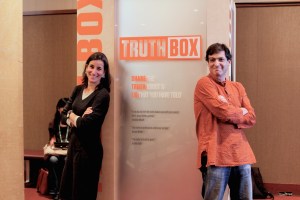

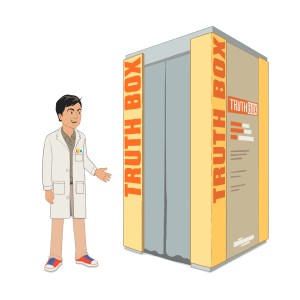
 Tweet
Tweet  Like
Like 